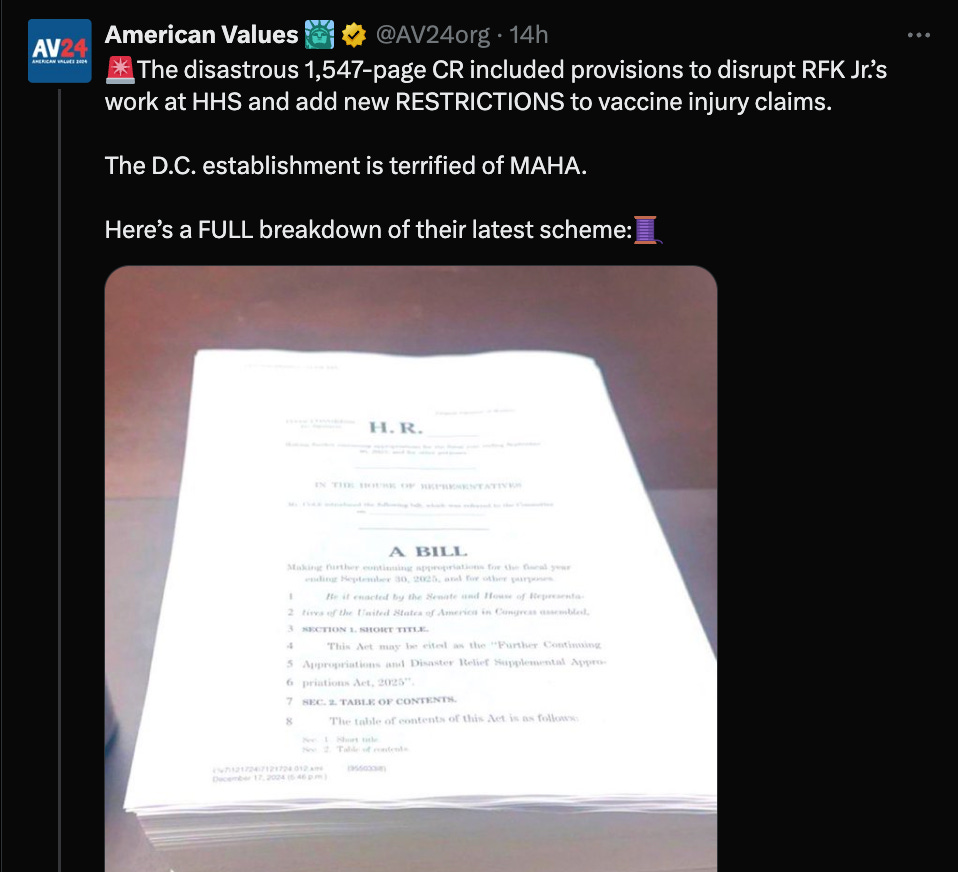Victory for Public Voice: How Citizen Journalism and High-Profile Opposition Defeated the CR Bill
Amidst a wave of public dissent and strong opposition from figures like President-elect Trump and Elon Musk, the controversial CR Bill collapses, showcasing the power of citizen engagement and social
In a remarkable turn of events, the Continuing Resolution (CR) bill, packed with contentious provisions, was shelved thanks to a potent combination of citizen journalism, public outcry, and the influential voices of President-elect Donald Trump and tech mogul Elon Musk. The bipartisan budget deal, which had initially seemed poised to pass, crumbled under the weight of their public opposition, highlighting the transformative impact of social media and prominent public figures on legislative processes.
Key Controversial Provisions in the CR Bill:
Congressional Pay Raises: The proposal included significant pay raises for members of Congress, sparking outrage among constituents who viewed it as highly inappropriate during times of widespread economic difficulty.
Bioweapons Laboratories: Allocations for 12 new biolabs intended for pandemic research stirred fears regarding safety and the ethical implications of such facilities, intensifying public resistance.
Interference with RFK Jr.'s Role: The bill sought to limit incoming HHS Secretary Robert F. Kennedy Jr.'s authority to make necessary reforms, particularly in vaccine safety—a move perceived as a direct challenge to his anticipated reformative agenda. [Click to contact your Senators to support Bobby’s confirmation]
Pandemic Preparedness and Response Act: Embedded within the bill were measures for vaccine and mask mandates, vaccine passports, and broadened emergency powers, raising concerns about potential overreach and infringement on personal freedoms.
Privacy and Data Control: The attempt to block subpoenas for House data was seen as a move to decrease governmental transparency, particularly regarding the actions of the January 6 committee.
These are only a few examples of dozens of egregious mandates and appropriations diametrically opposed to both the will and the rights of an increasingly vocal and organized We The People.
The Role of Public and Digital Engagement:
The CR bill's exposure and subsequent defeat were significantly influenced by the extensive use of social media platforms like X, where Elon Musk voiced critical opinions that resonated with millions. President-elect Trump also utilized these platforms to express his strong opposition, amplifying the public's concerns about the bill's provisions. This high-profile criticism was pivotal, turning what might have been a routine legislative process into a national debate on governance and transparency.
Moreover, the digital discourse reached a fever pitch with over 1 million posts on the topic within just 48 hours. This extraordinary level of engagement placed intense pressure on elected officials, making it increasingly difficult for them to support the bill amidst such widespread public scrutiny. The relentless sharing of information, analysis, and opinions through citizen journalism laid bare the bill's many controversial aspects, rallying the public and policymakers alike to demand a reevaluation.
Conclusion:
The defeat of the CR bill is a powerful reminder of the influence that the public can wield when effectively mobilized. Through the combined efforts of high-profile figures, digital platforms, and active citizenry (the 5th Estate), what started as a legislative certainty was overturned. This event not only celebrates the triumph of public will but also sets a precedent for transparency and public accountability in legislative processes. As the landscape of political engagement continues to evolve, the role of social media and public discourse remains crucial in shaping the policies that govern our lives.







Thank you for highlighting this Sayer. I read many different health related emails and you are only the second that I have seen that has highlighted the true measures behind this CR Bill.
The underlying question is why we keep having to fight our own Speaker, who acts more like a Democrat than a Republican. Right out of the gate he reversed himself on giving money to Ukraine before our own border crisis was solved, then came an about-face on the outrageous warrantless FISA court orders. Both of those had been defining issues of Johnson's speakership campaign, and yet he stabbed us in the back. Since then it's only been more of the same. Big talk, no action. He walks into negotiations already having given away the farm, then tells us we have no choice, because...
I trust all the well-deserved criticism of this latest shameful escapade has left Johnson extremely weakened and vulnerable. There will be a lot of maneuvering over the holidays, to see what's to come of the 1/3 speakership election. We need someone in their who will FIGHT for America. Trump has reaffirmed conditional support for Johnson, but that could crumble in a day, as it did with his support for Ronna McDaniels at RNC, if a strong alternative arises.